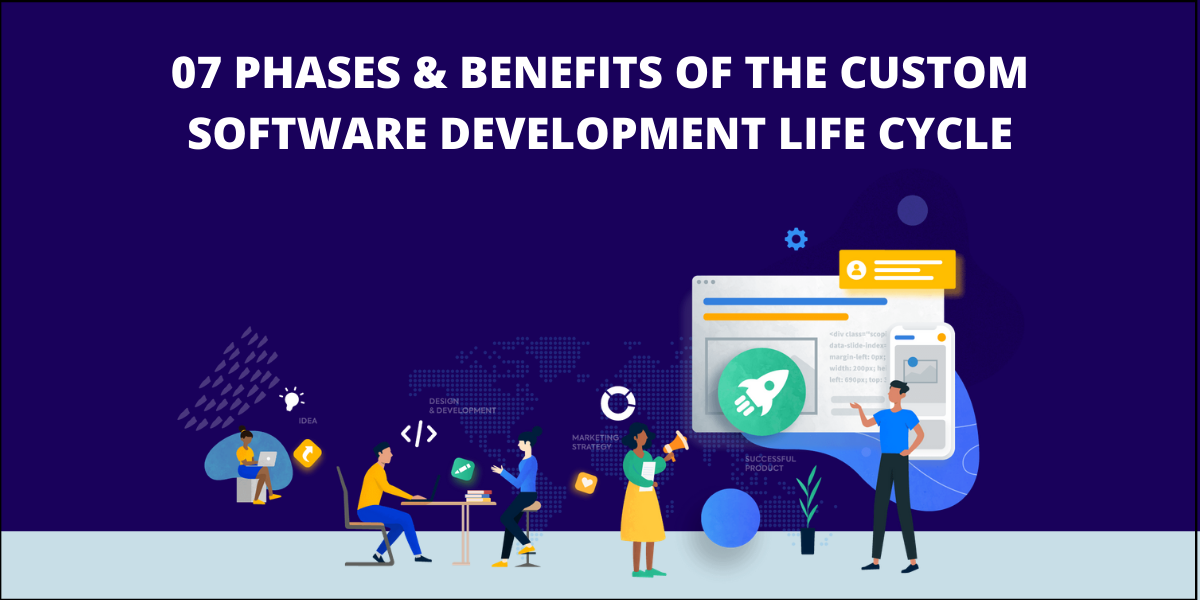
What Is Custom Software Development Life Cycle?
In simple words, it is a process of developing custom software that helps to enhance the quality and the procedure of development. Software organizations use seven phased procedures to maintain satisfactory results and effectiveness in software. Custom software development is software development used by a small group of users, unlike normal software. The 07 phases explained below:
Step By Step Phases of the Software Development Life Cycle Are:
- PLANNING: Gathering important information like targeted customer’s requirements, expectations, amount of capital needed, time, and required resources necessary for developing custom software is the first step in the process.
- REQUIREMENTS: Developers and product managers collaborate with SMEs to document the needs that require to be processed by software developers. This stage ensures that the developed plan of action is aligned with the end-users requirements.
- DESIGNING AND PROTOTYPING: In this stage, developers and software architects start coding and designing the software according to the planning and requirements of customers. Proven methods used to solve the algorithm issues. By the end of this stage, the team gets design, patterns, components, and code used as a point of departure for further development.
- CODING: In this phase of custom software development services, the developers start coding the whole framework using preferred programming languages. Coding is a crucial stage of custom software development; thus, it divided into portions and given to specific developers. Then, developers use predefined coding guidelines and tools like compilers, interpreters, debuggers to build and execute the code.
- TESTING: The testing phase of the software development life cycle is arguably one of the most important. It is impossible to deliver quality without testing the product first. Methods of testing the custom software include code quality, unit testing, integration tests, performance testing, security testing. The output of all these testing decides whether the software is ready for an introduction to the production environment or not.
- SOFTWARE DEPLOYMENT: This is the stage that comes before launching the product; the main purpose is to deploy the software to the manufacturing unit to reach the customers. Many companies push the software across different delivery environments such as testing areas, allowing the stakeholder to test the product for one more time to check for any possible faults.
- Maintenance: During launch and after the success of the software, the company regularly updates the software for updates so that it keeps fulfilling the current requirements of the end-users. A reliable software company never forgets the software after launch. They always improve its performance daily by updating it so that their customers satisfy and use their services frequently.
Benefits of Custom Software Development:-
- Personalization: The best part of custom software development is that it build especially for your requirements and needs.
- Flexibility and Efficiency: With custom software development, you can decide what features you want to include in your software. With growth, your custom software can easily update according to the new opportunities.
- Cost-Effective: The budget and funds available to the company make custom software available to small businesses or start-ups.
CONCLUSION:
The most successful software development companies are the ones that follow the 07 phased custom software development life cycles with at most consideration, and each step monitors closely for the best outcomes.